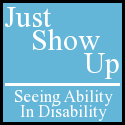
I can count the number of times I've been on a horse. Truth be told, I've never been on one. A few years ago, my youngest daughter took horseback riding lessons. I stayed as close as I dared while she rode the horse picked out for her, but I was never tempted to scale the mighty mountain of a horse.
Even as a child, when I crouched under my bedcovers and read Black Beauty into the night, or years later, as I breathlessly watched Robert Redford effortlessly work his magic in The Horse Whisperer, I was determined that "East is East, and West is West, and never the twain shall meet."
My daughter, thankfully, had no such reservations about hopping up on one of these magnificent beasts. As I tiptoed around them, she learned everything she could about the care and feeding of horses. She cleaned their hooves, spent countless hours brushing them down, and in no time at all, she was able to prepare a horse for riding in a matter of minutes.
I stood in awe as she even managed to win a battle of wills with one particularly rebellious stallion. In the end, they became fast friends. This shouldn't have come as a surprise. The horse is a social animal, forming strong bonds with members of its herd. As I stood at a safe distance, it became obvious, too, that horses possess almost a sixth sense, picking up on subtle social cues. If my daughter was feeling 'blue,' her new best friend dropped his rebel-without-a-cause routine and became gentler with her.
As a result, her self-esteem increased dramatically during the years she spent with him. She grew into a confident woman, devoid of body image issues, and always eager to climb another mountain.
I found it interesting, therefore, to read that "riding horses can help the disabled physically, by strengthening muscle tone and learning balance. But, riding also increases self-confidence and awareness of one's body, according to those involved in horse therapy programs." Hippotherapy (the word 'hippotherapy' comes from the Greek 'hippos,' meaning horse and 'therapy,' meaning care. Thus, hippotherapy is the utilization of the horse for therapeutic purposes rather than equestrian goals. Source: The Canadian Therapeutic Riding Association) "may also affect psychological, cognitive, behavioural and communication functions for clients of all ages. Clients who may benefit from hippotherapy can have a variety of diagnoses: examples include cerebral palsy, multiple sclerosis, developmental delay, traumatic brain injury, stroke, autism, and learning or language disabilities."
In combination with other therapeutic treatments, such as music or art therapy, service dogs, occupational therapy, intense early intervention (Applied Behaviour Analysis), speech therapy, and physical therapy, just to name a few, horse therapy can sometimes achieve amazing results.
My daughter asked me recently if I'd be interested in taking riding lessons with her. Maybe it's time to befriend my own Black Beauty, and take a page from others who have benefited from the deep connection they've forged with horses. Time to get off my high horse, for who knows, maybe this will be another golden opportunity for another mother-daughter bonding experience.















































